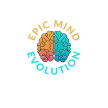Reasons to Stop Worrying...
Break the habit of excessive thinking

Today, we're diving deep into the age-old struggle of worrying about the future. We all do it, right? We spend countless hours stressing over what might happen, what could go wrong, and how we can control every aspect of our lives to ensure a smooth ride ahead. But is this constant fretting really worth it? Or are we just spinning our wheels in a futile attempt to predict the unpredictable?
In this article, we'll explore the essence of our civilization's reliance on long-term planning, the inherent uncertainties of the future, and why worrying often does more harm than good. So, let's embark on a journey to master the art of letting go of our worries about the future.
The essence of our civilization rests on its capacity to strategize for the future. Without the ability to organize, design, and defer immediate gratification for greater purposes, humanity would not have thrived. Consider, for instance, the Kölner Dom, a monumental cathedral in Cologne, Germany. Its construction commenced in 1248 and concluded no sooner than 1880, factoring in a hiatus of approximately three hundred years. Generations dedicated their lives to building something they would never witness completed. This exemplifies how long-term planning can lead to astounding feats, such as lunar exploration and the imminent possibility of manned missions to Mars.
However, it is crucial to differentiate between planning and worrying. Planning is constructive, focusing on actions within a conceptual future, while worrying attempts to control the uncontrollable by fixating on various scenarios, often unrealistic or detached from reality. Regrettably, worrying is counterproductive, doing more harm than good. Yet, despite its detrimental effects, many persist in worrying under the misguided belief that it helps in some way. This video articulates compelling reasons to cease worrying.
The vast majority of things people worry about won't happen. Uncertainty is a constant in the future. Throughout history, individuals have claimed to possess foresight, yet their predictions have often been either vaguely accurate or completely false. While some may argue that the future is predetermined, has anyone truly deciphered its secrets? As long as time remains a constraint, we perceive the future as an unknown realm. This uncertainty can be both a blessing and a curse. Our minds crave certainty, which is why religions providing answers about human destiny can offer solace, filling the void with something tangible.
However, even for the devout, life's uncertainties persist, with mysteries surrounding the afterlife and earthly existence. Faced with an unpredictable future, our minds generate potential scenarios. This capacity for foresight can be advantageous for preparedness, allowing us to anticipate and plan based on speculative outcomes. For instance, foreseeing financial hardships enables us to save more effectively. However, excessive worrying leads to the proliferation of unnecessary predictions, often about trivial matters, which play out in only one way in the present moment—contrary to the multitude of scenarios we've imagined. Moreover, the likelihood is that many of these envisioned situations will never materialize. Despite our attempts to anticipate every possibility, predicting the future with precision is futile. As Eckhart Tolle aptly puts it, "worry pretends to be necessary but serves no useful purpose.
We can't control the future. The only control we have is over our actions in the present moment. Our minds seek dominion over what is yet to come, envisioning it as though it were the present. We erroneously believe that by meticulously calculating every conceivable outcome, we can seize command. If only we could foresee events with precision, we might wield an advantage over our actions—knowing, for instance, when relationships will end or which stocks to invest in for wealth. However, the future remains beyond our grasp; the only disparity is that we possess foreknowledge, rendering it indistinguishable from the past, which too is beyond our dominion. Our sole influence lies in our actions in the present moment.
Procrastination often stems from an inability to disengage from the past and future, diverting focus from the task at hand. In the present, we have the power to shape a new past and influence the future, necessitating steadfast concentration on the here and now. By breaking tasks into manageable components, we can concentrate more effectively, temporarily setting aside thoughts of the end result and focusing on shorter timeframes. This alleviates the burden of seemingly insurmountable goals while still progressing towards them methodically. Worrying serves only to hinder action, as anxiety spawned from fixating on the future undermines our efforts to effect change. As the Bible admonishes, "Do not worry about tomorrow, for tomorrow will worry about itself. Each day has enough trouble of its own." Similarly, Seneca's "On the Shortness of Life" urges us to focus on the present, recognizing that the entire future remains uncertain: "You are arranging what lies in Fortune’s control and abandoning what lies in yours. What are you looking at? To what goal are you straining? The whole future lies in uncertainty: live immediately.
People often misjudge events, unable to accurately assess their true value until they unfold. A characteristic of individuals who worry persistently is their inclination towards specific outcomes while avoiding others. For instance, many individuals fret about social interactions due to a desire to be accepted or about their careers out of fear of job loss. Through contemplating various potential scenarios, the mind endeavors to prevent undesirable outcomes and secure desired ones. However, the future remains uncertain. Consequently, we cannot ascertain whether desired outcomes are genuinely beneficial or undesirable outcomes are truly detrimental.
In Taoist tradition, there exists a tale illustrating the folly of passing judgment based on an incomplete understanding. It recounts the experiences of an elderly farmer whose horse unexpectedly fled. Upon learning of this, concerned neighbors visited and lamented, "What terrible luck!" To which the farmer simply replied, "Perhaps." Yet, the following day, the runaway horse returned, accompanied by three others.
The neighbors rejoiced, exclaiming, "How fortunate!" Again, the farmer responded, "Perhaps." Subsequently, when the farmer's son attempted to tame one of the new horses but ended up breaking his leg, sympathy poured from the neighbors, decrying the misfortune. Still, the farmer remained unperturbed, stating, "Perhaps." Soon after, military officials arrived to conscript able-bodied men, yet upon seeing the son's injury, they left him be. Once more, the neighbors congratulated the farmer on his luck. And once more, he replied, "Perhaps." This Taoist narrative underscores the fallibility of our assessments regarding the desirability or undesirability of current events, as outcomes remain uncertain. What appears negative may yield positive consequences, and vice versa. Hence, fixating on specific outcomes becomes futile in the absence of accurate judgment.
Perhaps losing a job heralds unforeseen opportunities, or financial setbacks pave the way for a happier existence. Uncertainty reigns supreme. However, it's reassuring to remember that every adversity conceals a potential benefit. In conclusion, it's crucial to acknowledge the detrimental impact of worrying on our well-being. Stemming from fear, worrying begets more fear, spiraling into a cycle of anxiety with profound effects on physical health. By recognizing the rarity of our worries materializing and our inability to accurately evaluate present circumstances, we're encouraged to prioritize mental well-being over uncontrollable concerns.
Thank you for reading this article about the impact of worrying on our lives. Remember, while planning for the future is crucial, excessive worrying can lead to unnecessary stress and anxiety. By focusing on the present moment and taking action where we can, we can better navigate the uncertainties of life.
About the Creator
Enjoyed the story? Support the Creator.
Subscribe for free to receive all their stories in your feed. You could also pledge your support or give them a one-off tip, letting them know you appreciate their work.






Comments
There are no comments for this story
Be the first to respond and start the conversation.